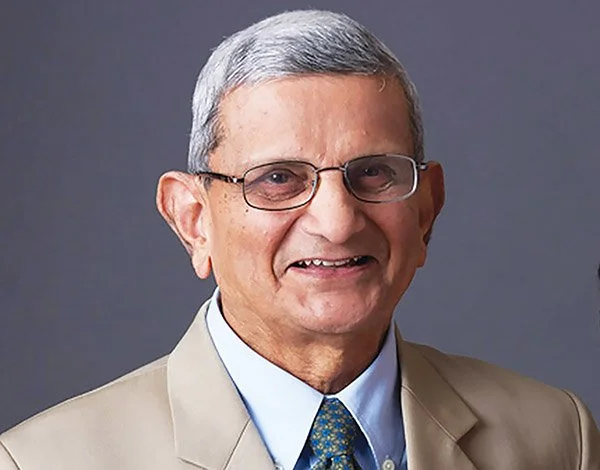SENIOR MOMENT
TRUST YOUR CHILDREN’S DREAMS
Trouble begins when parents project their own unrealized ambitions onto their children. Why do well-meaning parents do this? Image credit: ATUL CHOUDHARY on Unsplash.
By CHANDRAKANT SHAH, MD
Some years ago, I received a call from a friend asking me to speak with their daughter considering a career in medicine.
As a professor in a medical faculty, I often received such requests. I invited them to my home, and after exchanging a few pleasantries, I asked her parents if I could speak with her privately.
Within minutes the girl confided that she had no interest in becoming a doctor – it was her parents’ dream, not hers. Her real passion was health promotion. After our conversation, I explained to her parents the importance of respecting her autonomy. I cited several examples of students who failed their first year in medicine – not due to a lack of intelligence, but because they were pushed into it by parental expectations. A year later, she wrote to thank me. She was thriving in a health promotion program and, more importantly, was happy.
This is one of many examples I’ve seen where children silently struggle under the burden of living their parents’ dreams. One of the most heartfelt pleas a child can make is: “Do not live your dream through me.”
It’s not a rejection of love, but a call to be seen and supported as an individual.
Parenting is among the most demanding and rewarding roles in life. Parents naturally want the best for their children, offering wisdom from their own experiences. A mother who grew up in poverty may urge her child to pursue education to secure financial stability. A father who faced discrimination in the job market might encourage a “safe” and respected career path.
In their early years, children benefit immensely from this kind of guidance. They may not have the maturity to consider long-term consequences. Helping them frame realistic goals, ask tough questions, and plan backups is not overreach, it’s wise parenting.
But the line between guidance and imposition is thin. Trouble begins when parents project their own unrealized ambitions onto their children. A failed artist may pressure their child into music, or a doctor may insist their son or daughter follow in their footsteps. In such cases, the child’s dreams are overshadowed by the parent’s expectations. The result? Many children comply outwardly but suffer inwardly. They may struggle with identity, anxiety, depression, or a sense of being unloved for who they truly are. In extreme cases, especially in highly competitive cultures like South Korea, India, or even parts of North America, intense academic pressure has led to rising student suicides. Even when outcomes aren’t so severe, many adults reach midlife only to realize they’ve been living someone else’s dream.
Why do well-meaning parents do this? Often it stems from fear – fear of failure, fear of financial insecurity, or fear of their child being left behind. Traditional careers like medicine, law, and engineering are seen as paths to safety and status.
Cultural norms and peer pressure also play a role. Parents may compare their child’s choices to others’ kids’ choices – turning parenting into a competitive sport. And sometimes, unknowingly, they see their child as an extension of themselves rather than an individual with their own path.
A friend of mine who owned a successful construction firm often shared his wife’s concern about their son’s university major – drama and theater. She worried about his future and financial stability. I reassured her that he’d be fine if he was passionate about it. Years later, not only did he become a well-known director, but she proudly acted in one of his plays. What once caused anxiety became a source of joy and pride.
Success has many definitions. A mediocre doctor, forced into the role, will never match the joy and impact of a passionate teacher, artist, or social worker who chose their own path. Children flourish when they’re supported, not steered. They need encouragement, yes, but also room to discover themselves.
This doesn’t mean parents should stay completely hands-off. Children need structure, guidance, and sometimes a gentle nudge. But this should come from dialogue, not decree. It’s essential to listen, not just lecture. Ask not “What do I want my child to become?” but “Who is my child becoming, and how can I support that journey?”
We must also rethink our definitions of success. In a society that glorifies income and prestige, it’s easy to forget that happiness, purpose, and well-being matter more. Let’s celebrate creativity, kindness, empathy, and resilience just as much as academic excellence.
During my medical practice, I often told my patients: “I’m good at what I do, but I’m hopeless at hammering a straight nail in the wall.” This was my way of reminding them that we all have unique talents, and society functions best when each of us brings our strengths to the table. A child is no exception. They are not a blank slate for parents to write upon, but a seed to nurture – growing in their own time, in their own direction.
The healthiest parent-child relationships are partnerships, not projects. Children are not meant to “complete” their parents’ stories – they are here to write their own. Trusting that they will find their way, even if that way is unfamiliar, is perhaps the hardest but most loving act a parent can perform.
Let us normalize choosing passion over pressure, and purpose over prestige. In a world that needs more artists, healers, thinkers, caregivers, and innovators, we must stop limiting children to a narrow path of “acceptable” careers.
“Do not live your dream through me” is not rebellion – it is a child asking to be loved not for who they were expected to be, but for who they truly are.
Let us listen. Let us support. And most importantly, let us trust.
Chandrakant Shah, MD, FRCPC, O.ONT., Dr. Sc. (Hon), Professor Emeritus, Dalla Lana School of Public Health, University of Toronto, is an honorary consulting physician, Anishnawbe Health Toronto. He is the author of To Change the World: My Work With Diversity, Equity & Inclusion in Canada.


